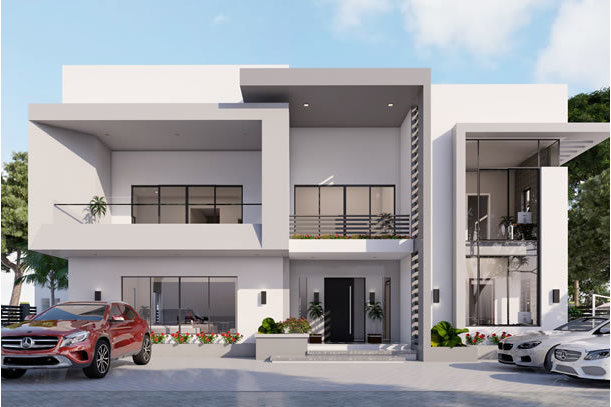2023: Building for sustainability

Summary
Pull Quote: Q&A with Sadiq Suleiman, Chief Operating Officer, Bilaad Realty.
In the last three years, we have witnessed significant disruption of global supply chains and the conventional way of working. The Covid-19 pandemic which triggered the crisis has now receded in terms of its acute threat to global public health. Sustainable development goals are back in focus, and for good reasons sustainability is no longer a niche play – even in real estate development. It is becoming mainstream.
Sadiq Suleiman, Chief Operating Officer of Bilaad Realty, speaks on the new trend in real estate and offer advice to budding entrepreneurs and incumbent industry players in the following Q&A.
Q: Real estate is attracting a great deal of interest, including from young people who want to go in and “cash out” big and fast. Looking beyond this flux, what is the next big thing for the real estate sector in Nigeria?
Sadiq Suleiman: The next big and best thing is building intelligent and integrated communities. Momentous innovation is coming to the real estate sector. In general, since the 19th century, every odd 50 to 75 years has witnessed breakthroughs in innovation that drive industry performance for years after. We have seen this in energy, telecommunication, medicine, information technology, etc. Following the major innovations, everyone starts doing the same thing. This is the same with Nigeria’s housing sector where developers have been doing the same thing in the last few decades. Bilaad Realty came to the market to buck the trend. We came in to provide solutions to problems – and not simply to make money.
The importance of R&D in delivering new value in the marketplace cannot be overemphasized. This means partnership between industry and academia must be established, maintained, and strengthened. The organisation itself must be a thinking one. This thinking is very ingrained at Bilaad. A couple of weeks ago during one of our expanded management meetings, one of my officers said, “We need to have a dedicated sub-unit that does R&D that will look at new building technologies etc.” With breakthrough innovation and technology comes cheaper costs. So, the establishment of the new intelligent and integrated communities that I envision is possible. Cost will not be a barrier to it.
We are currently in the process of registering an Incorporated Trustees, to be known as Bilaad Development Trust (BDT). The new entity will be responsible for the Corporate Social Responsibility activities and Social Investment Programs (SIPs) of Bilaad and its subsidiaries. One of the focal areas of BDT will be the provision of strategic linkage, sustainability policy support, and education-continuity program for start-ups across emerging sectors.
Q: These are cutting-edge thoughts. What’s your advice for the young people that are rushing into real estate business – or any business at that?
Sadiq Suleiman: The advice I give aspiring, young entrepreneurs that come to me is that they should not go into business for a primary and sole purpose of making money. In 90% of such cases, the entrepreneurs fall flat on their faces in a short time. The better approach is to go into a business because you have identified a problem you can profitably solve. At Bilaad, our Start-up team looked at a holistic lifestyle, in terms of security, leisure, and energy efficiency. We are also looking at cutting carbon emissions and limiting our carbon footprints.
I tell young people that discipline is essential – in all endeavours. Following a structured path can be helpful in achieving discipline. So, I rarely advise fresh graduates to go straightaway into setting up their businesses. Part of the reason is that we are not where we should be as a country in terms adequate transport, energy and IT infrastructures, and access to credit. I advise fresh graduates to first get a job and learn the work environment and build a network. Learning business writing, making high impact presentations, saving for seed capital, and learning soft skills on a job are very important for entrepreneurial success. After this, I think they should follow their gut feeling and not wait for a utopia where everything is available to function.
Q: How do you view succession planning for the long-term success of business?
Sadiq Suleiman: Succession planning is a cornerstone of continuity and building a formidable corporate culture. If you study the top 100 companies on the Fortune 500 list – apart from the tech companies – they joined the list up to 15 years ago. Some of them are over five decades old.
Successful companies are built on amazing corporate cultures. Systems make for success, and people establish and drive systems. When you have invested in building a system, you need further investment in people to drive it to the next level. My rule of thumb in every responsibility that I have been privileged to handle in the last 19 years of my career is to identify and begin to mentor the people that would lead the organisation into the next generation. I ask: “How do I ensure knowledge is captured and transferred? How do I ensure that the success being enjoyed by either my team or the company is not truncated when I step away?”
Succession planning can be successfully applied in the public sector, too – as we have seen in Singapore – to foster continued national progress.
Q: Let’s get back to what you earlier mentioned: ‘holistic’ lifestyle. How does Bilaad help people to achieve that in the housing sector?
Sadiq Suleiman: It is important to have a robust CSR framework. Making social investment will remain essential because we will forever have to support social development. At Bilaad, we make the provision of financial literacy – and fostering financial intelligence – a first-line priority. If you go on our website or handle any of our brochures, you will see “Investment Advisory Service” among the services we provide. This means that when we come into contact with prospective clients or customers, we are not obsessed with offloading our inventory on them and making money. Rather, we engage each client to understand his or her financial standing, family size, and long-term goals, and then advice appropriately.
Some people start off wanting to buy a very large house, but after engaging them, and owing to the fact that they have small families and they don't intend to stay in the FCT longer than their working life, for instance, we say: “Look you don't need more than X cubic metres of space in a house; of course it is your money you want to spend and you are entitled to doing so, but I’d advise you buy a house that'll cost less, then invest the rest of the money in smaller buildings and get rental income.” The other elements of a holistic lifestyle – as mentioned earlier – are built into our estate developments.
Q: What advancements would you like to see in the real estate industry?
Sadiq Suleiman: I have been living in Abuja since 1996, when late General Sani Abacha was Head of State. With the current influx of people into the FCT, Abuja will look like Lagos – in terms of population density and its associated housing issues – in the next five years. To prevent this, we need to start investing in rural communities where people can also experience innovation and technology.
We can have cheap homes powered by off-grid electricity. People here are still obsessed with brick-and-mortar technology. But watching “Renovate My Home” on television, you would see a house torn down and rebuilt in five to six days. It's not brick-and-mortar; and you could have prefab, butterfly, etc. In Nigeria, we are blessed with natural raw materials, like woods, rubber, talc, ore, etc. The country is also very big. Vast empty lands separate our states.
Integrating rural communities into the housing revolution requires setting up production centres and building ecosystem of people, technology, and services around these communities based on their areas of competitive advantage. If we do this at scale, in 10-15 years, many people will prefer to retire in the village.
Related
-
Building for the demand for future housing
The homes of the future would have to be resilient, capable of adapting to exigent natural and man-made events, such as ...
-
Improved housing could reduce malaria cases
Besides insecticide-treated bednets and indoor spraying, modern homes could provide additional control to malaria cases.
-
Outlook of post-covid-19 Nigerian real estate sector
In the new workplace post-COVID-19, cities will need to serve more residents who work from home, says PWC.










